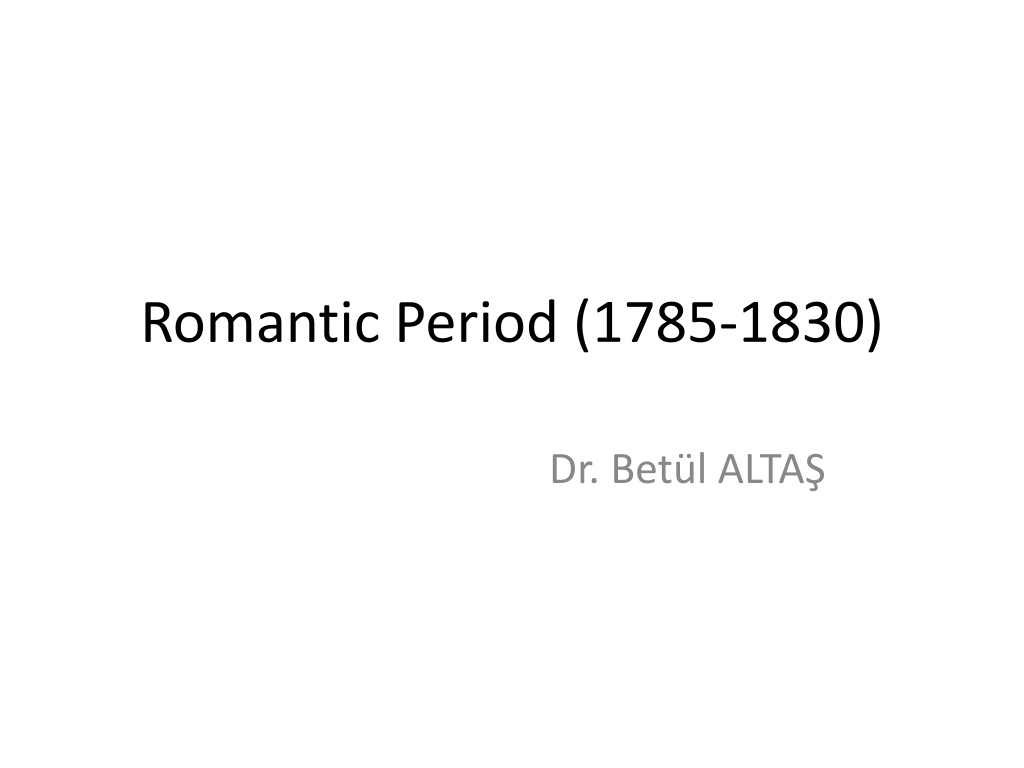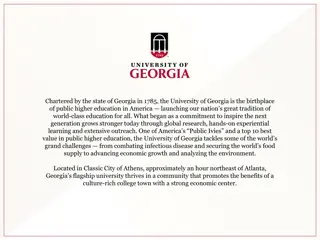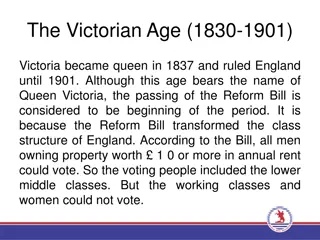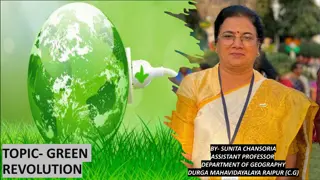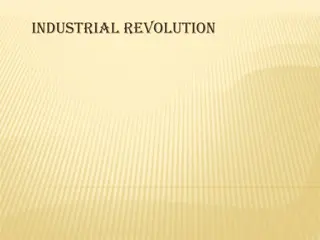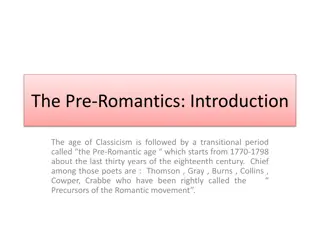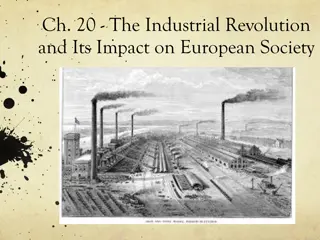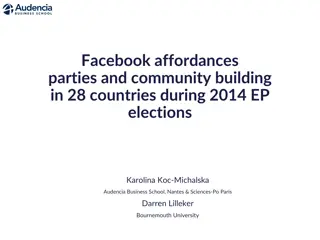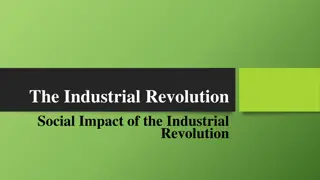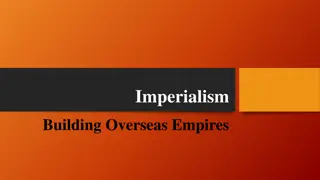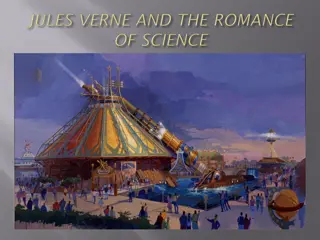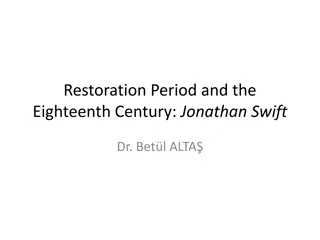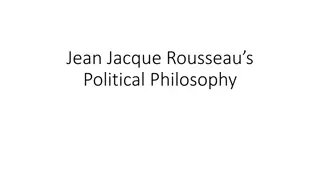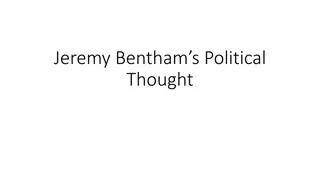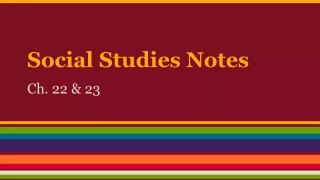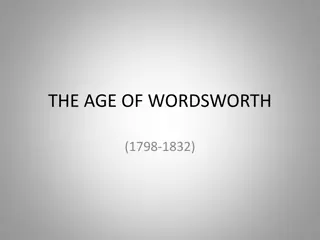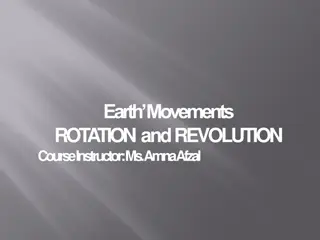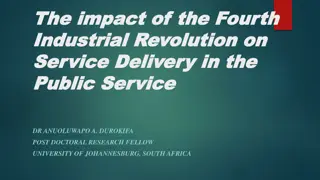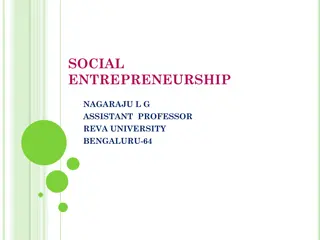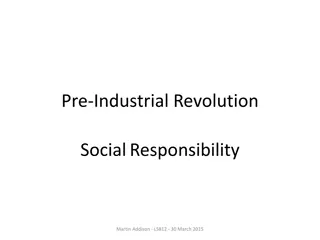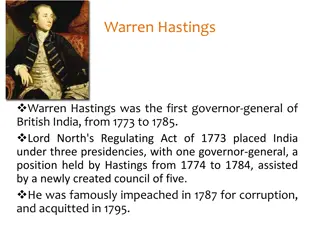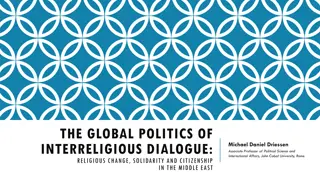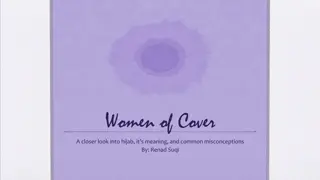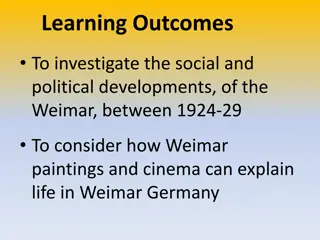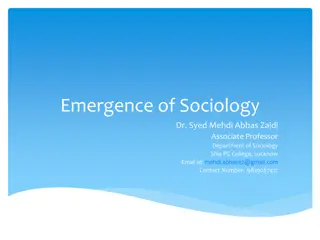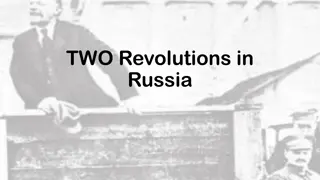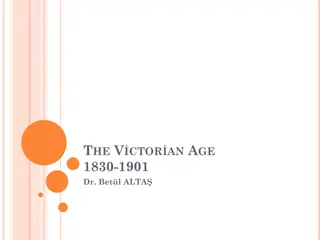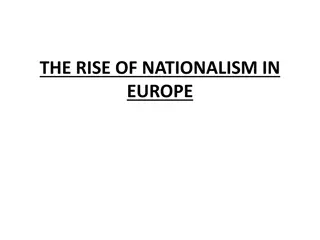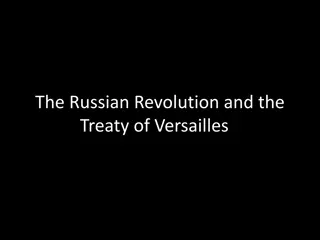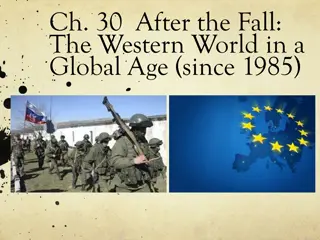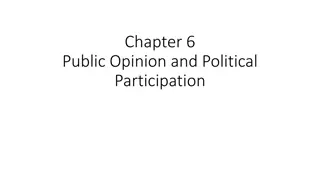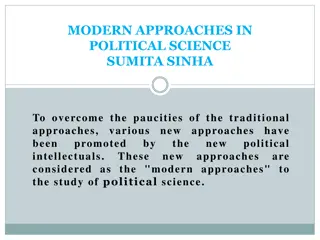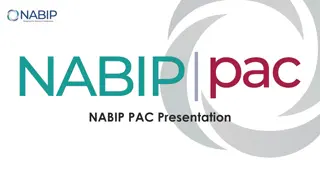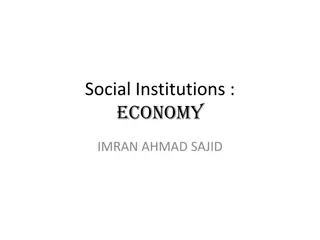The Impact of Political and Social Revolution in the Romantic Period (1785-1830)
England underwent significant changes during the Romantic Period (1785-1830) as it transitioned from an agricultural to an industrial nation, shifting economic power dynamics. This period was marked by wars, inflation, and social upheaval, leading to a revolution in literature and a focus on inner emotions in poetry. Key figures such as Samuel Taylor Coleridge and William Wordsworth reshaped English literature with their emphasis on democracy and the theory of poetry. The era challenged traditional literary norms and focused on the inner world of emotions in creating poetry.
Download Presentation

Please find below an Image/Link to download the presentation.
The content on the website is provided AS IS for your information and personal use only. It may not be sold, licensed, or shared on other websites without obtaining consent from the author. Download presentation by click this link. If you encounter any issues during the download, it is possible that the publisher has removed the file from their server.
E N D
Presentation Transcript
Romantic Period (1785-1830) Dr. Bet l ALTA
The Political Background England experienced a change from agricultural society to a modern industrial nation. Thus, the balance of economic power shifted to large- scale employers. This change occured in the context of American Revolution. Moreover, the change took place in the context of the French Revolution.
This drastic change occured in the context of: wars inflation depression constant threat to the social structure to which ruling class responded.
The Spirit of the Age Political and social revolution. Revolution in literature is connected with: provocations of French Revolution discussions hopes and terrors
The Revolution generated a pervasive feeling that this was an age of new beginnings.
Samuel Taylor Coleridge and William Wordsworth, publishers of Lyrical Ballads of 1798, give new insights into English literature in terms of : politics of democracy the theory practice of poetry
In the course of 18th century, there had been increasing oppositions to tradition of Dryden, Pope, S. Johnson, especially in the 1740s and later.
The concept of poetry and the poet Poetry is defined as imitation of human life. The main focus of the poet is on instructing and giving artistic pleasure to reader. According to William Wordsworth, source of poem is located in both the outer and inner world.
In his opinion, essential materials of a poem are not external people and events, but the inner feelings of the author. In other words, external objects in nature should be transformed by the author.
Other Romantic theories also refer to mind, emotions and imagination of the poet. Like Wordsworth s overflow in poetry, many writers identified poetry as expression, utterance and exhibition of emotions. William Blake poem as an embodiment of Percy Bysshe Shelley poet s vision
In the Romantic lyric, the I is not a typicall lyric speaker, such as the Petrarchan lover or Cavier gallant of Elizabethan and 17th century love poems. In the poems of Wordsworth, Coleridge, Shelley and Keats, the experiences and states of mind which are expressed by the lyric speaker are in accord with known facts of poet s life and personal confessions.
William Blakes Milton Percy Shelley s Prometheus Unbound John Keats s Endymion / The Fall of Hyperion
As to Coleridge, the truth lies in a union of opposites. In his opinion, the act of composing poetry is predicated on psychological contraries of passion and of will.
The emphasis is on the free activity of imagination related to instinct, institution and feelings of the heart to complement to judgments of logical faculty. Coleridge claims that deep thinking is attained by a man of deep feeling. A metaphysical solution is seen as suspicous by Coleridge.
